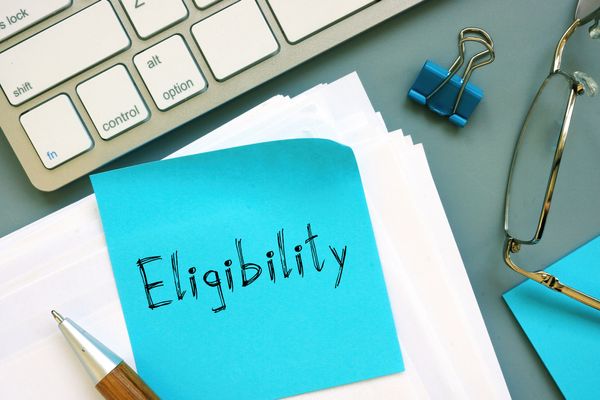In the vast realm of investment opportunities, tax lien investing stands out as a unique way to achieve potential returns. For those who are just beginning to explore this avenue or for seasoned investors looking to enhance their strategies, understanding the nuances of tax lien investments is crucial. This article will delve into the world of tax lien investing, exploring its benefits, challenges, and the strategies that can maximize success.
What is Tax Lien Investing?
At its core, tax lien investing is the process of purchasing a lien that has been placed on a property due to unpaid property taxes. When property owners fail to pay their taxes, local governments can place a lien on the property. To recoup the owed taxes, the local government can then sell these liens to investors. The property owner then owes the investor, not the local government.
The investor can earn returns in two main ways:
Interest Payments
If the property owner decides to pay off the tax debt, they will also have to pay interest. This interest rate, set by local statutes, can range anywhere from 5% to 36% or more.
Property Acquisition
In cases where the property owner doesn't redeem the tax lien, the investor might have the chance to foreclose on the property, potentially acquiring it for a fraction of its market value.
Benefits of Tax Lien Investing
High Potential Returns
One of the most attractive features is the high-interest rates. Depending on the jurisdiction, interest rates can be significantly higher than those offered by traditional investments.
Collateral
Unlike stocks or bonds, tax liens are secured by real property. This provides a tangible asset that can potentially be acquired if the lien isn't redeemed.
Diversification
Investing in tax liens allows investors to diversify their portfolio, reducing the impact of market volatility on their overall investment performance.
Challenges to Consider
Like all investments, tax lien investing isn’t without its challenges:
Due Diligence
Proper research is crucial. Some properties might be worthless or may come with unexpected liabilities.
No Guaranteed Returns
While the potential for high returns exists, there's no guarantee that a property owner will redeem the lien or that an investor will recoup their initial investment.
Legal Complexities
Different jurisdictions have varied laws regarding tax liens. Navigating these can be complex and might require legal assistance.
Strategies for Success in Tax Lien Investing
Research, Research, Research
Always research the properties before purchasing a tax lien. Understand the property's condition, location, market value, and any other outstanding liens or issues.
Start Small
Especially for beginners, starting with smaller liens allows you to understand the process without committing significant capital.
Understand Local Laws
Become familiar with the specific laws and regulations in the jurisdiction where you are investing. This will help you understand redemption periods, interest rates, and foreclosure processes.
Network
Join local investment groups or online forums dedicated to tax lien investing. Networking can offer insights, advice, and potentially lead to partnership opportunities.
Stay Updated
Tax laws and regulations can change. Ensure you're updated on any legal shifts that could impact your investments.
Advanced Tips for Tax Lien Investing
Beyond the basic strategies, those looking to dive deeper into tax lien investing can consider these advanced tips:
Consider Online Auctions
As technology advances, more counties are moving their tax lien sales online. This can be a boon for investors who want to participate in auctions without being physically present. However, it's essential to be familiar with the online platform and its rules.
Focus on Over-the-Counter Liens
Not all tax liens get sold at auction. Those that don't are often available "over-the-counter" directly from the county. These can sometimes be less competitive and offer good value.
Use Technology to Your Advantage
With the rise of data analytics, there are now software and tools designed specifically for tax lien investors. These tools can help you track auctions, manage your portfolio, and analyze properties more efficiently.
Reinvest Your Profits
Like any good investment strategy, consider reinvesting the interest or profits you make from redeemed liens. This compounding can significantly increase your returns over time.
Be Aware of the Ethical Implications
Remember, behind every tax lien is a property owner who couldn't pay their taxes. Some investors struggle with the idea of potentially foreclosing on someone's home. It's essential to approach the process with empathy and integrity, potentially working with homeowners to find solutions when possible.
Potential Pitfalls to Avoid
Overpaying at Auction
In competitive auctions, it's easy to get caught up in the moment and overpay for a lien. Setting a strict budget beforehand can help prevent this.
Neglecting Ongoing Costs
If you end up taking possession of a property, there might be ongoing costs like maintenance, repairs, or legal fees. Always factor these into your investment calculations.
Over-Diversification
While diversification is generally a sound strategy, spreading yourself too thin—especially in unfamiliar territories—can increase risks. It's often better to become an expert in one or two markets than to have a superficial understanding of many.
Ignoring Environmental Issues
Some properties might come with environmental issues like contamination. These can be costly to address and can significantly impact the property's value.
Final Thoughts
Tax lien certificates have become an attractive avenue for private investors looking to delve deeper into the world of real estate. The process is straightforward: when an owner fails to pay their property taxes, municipalities issue a tax lien certificate to represent the delinquent property taxes owed. Associations like the National Tax Lien Association have been at the forefront of educating individuals on how tax lien investing works, ensuring clarity in the intricate dance of legal claims, purchase of tax liens, and navigating the possible foreclosure process.
However, like every form of investment, there are pros and cons to consider. The allure of potentially acquiring a property for the taxes owed, or earning significant returns through interest on the tax lien certificate, balances against the intricacies of tax deeds and the inherent risks when the owner fails to pay property taxes. For those intrigued by the potential of investing in real estate through this method, understanding every facet—from the acquisition of property tax liens to the possible foreclosure process—is essential. Knowledge and due diligence remain the bedrock of a successful tax lien investment.






